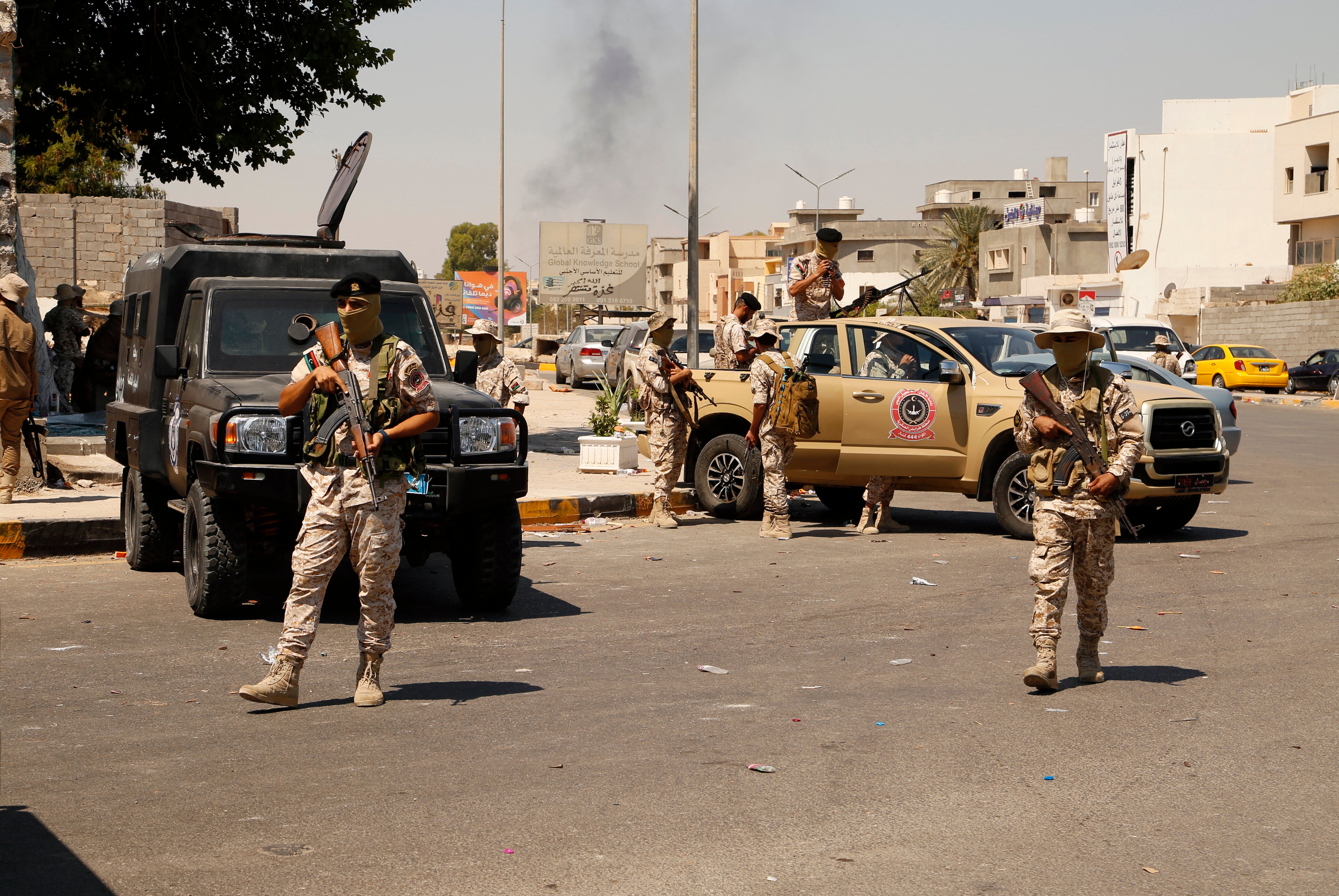UN extends Libya mission for 3 months at Russia's insistence
The U.N. Security Council has voted to extend its political mission in Libya, but at Russia’s insistence for only three months rather than a year-long mandate

Your support helps us to tell the story
From reproductive rights to climate change to Big Tech, The Independent is on the ground when the story is developing. Whether it's investigating the financials of Elon Musk's pro-Trump PAC or producing our latest documentary, 'The A Word', which shines a light on the American women fighting for reproductive rights, we know how important it is to parse out the facts from the messaging.
At such a critical moment in US history, we need reporters on the ground. Your donation allows us to keep sending journalists to speak to both sides of the story.
The Independent is trusted by Americans across the entire political spectrum. And unlike many other quality news outlets, we choose not to lock Americans out of our reporting and analysis with paywalls. We believe quality journalism should be available to everyone, paid for by those who can afford it.
Your support makes all the difference.The U.N. Security Council voted Thursday to extend its political mission in Libya, but at Russia's insistence for only three months rather than a year-long mandate.
The council's three African members abstained to protest Russia’s blocking the longer extension they say is needed to help the divided country move to elections and stability.
Russia’s deputy ambassador, Dmitry Poyansky, reiterated Moscow's position that the U.N. mission must get a new special representative before it has a longer mandate.
U.N. special envoy Jan Kubis resigned last Nov. 23 after 10 months on the job, and a number of candidates proposed by U.N. Secretary-General Antonio Guterres have been rejected either by council members, Libya or neighboring countries.
After Kubis left, Guterres appointed veteran American diplomat Stephanie Williams, a former U.N. deputy special representative in Libya, as his special adviser. But council diplomats said she is leaving that post Sunday, which means the mission will have no leader as Libyans grapple with a constitutional and political crisis.
U.S. Ambassador Linda Thomas-Greenfield said the United States shares the frustration of the council's three African members — Ghana, Kenya and Gabon. She called Russia’s contention that a three-month extension until Oct. 31 will somehow spur the selection of a new special representative “specious.”
The mission is important for the Libyan people "in supporting preparations for elections, monitoring the cease-fire, reporting on human rights issues, and providing technical assistance on state finances and budget,” she told the council after the 12-0 vote.
“It does a disservice to them, and all of us, to play games with the mandate,” she added.
Oil-rich Libya has been wracked by conflict since a NATO-backed uprising toppled and killed longtime dictator Moammar Gadhafi in 2011. The country was split by rival administrations, one in the east backed by military commander Khalifa Hifter and a U.N.-supported administration in the capital of Tripoli in the west. Each side is supported by different militias and foreign powers.
In April 2019, Hifter and his forces, backed by Egypt and the United Arab Emirates, launched an offensive trying to capture Tripoli. His campaign collapsed after Turkey stepped up its military support for the U.N.-supported government with hundreds of troops and thousands of Syrian mercenaries.
An October 2020 cease-fire accord led to an agreement on a transitional government in early February 2021 headed by Prime Minister Abdul Hamid Dbeibah and to the scheduling of elections for last Dec. 24. But the elections weren’t held.
Dbeibah has refused to step down, and in response the country’s east-based lawmakers elected a rival prime minister, Fathy Bashagha, a former interior minister who is now operating a separate administration out of the city of Sirte.
Assistant Secretary-General Martha Pobee told the council Monday that the overall situation in Libya remains “highly volatile,” with a tense security situation, “deeply disturbing” shows of force and sporadic violence by militias engaged in political maneuvering.
She also cited a dispute over leadership of the National Oil Corporation and serious human rights concerns, including the reported arrest by armed groups of dozens of protesters who took part in July 1 demonstrations decrying deteriorating living conditions and demanding progress on elections
Polyansky said Russia understands the view of his African colleagues, but he defended limiting the mission's mandate without the appointment of a new special representative, saying it is unusual the body "has remained headless for quite some time already.”
He warned that Libya “has approached a red line, upon the crossing of which armed conflict may resume.”
“What’s at stake now is the future of Libya and its people,” Polyansky said after the vote.
Solomon Korbieh, minister-counselor at Ghana’s U.N. Mission, said the fifth brief extension of the mission’s mandate demonstrated again the Security Council’s failure “to show commitment to the Libyan people.”
He called on council members “to place the overall interests of Libya above all else” and work with the secretary-general to find a new leader for the mission.
“The people of Libya are crying for elections as a basic step towards the rebuilding of their nation and this council cannot let them down,” Korbieh said.